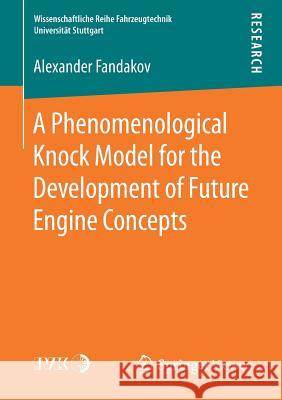A Phenomenological Knock Model for the Development of Future Engine Concepts » książka
topmenu
A Phenomenological Knock Model for the Development of Future Engine Concepts
ISBN-13: 9783658248741 / Angielski / Miękka / 2019 / 233 str.
Kategorie:
Kategorie BISAC:
Wydawca:
Springer Vieweg
Seria wydawnicza:
Język:
Angielski
ISBN-13:
9783658248741
Rok wydania:
2019
Wydanie:
2019
Ilość stron:
233
Waga:
0.33 kg
Wymiary:
21.01 x 14.81 x 1.47
Oprawa:
Miękka
Wolumenów:
01
Dodatkowe informacje:
Wydanie ilustrowane











